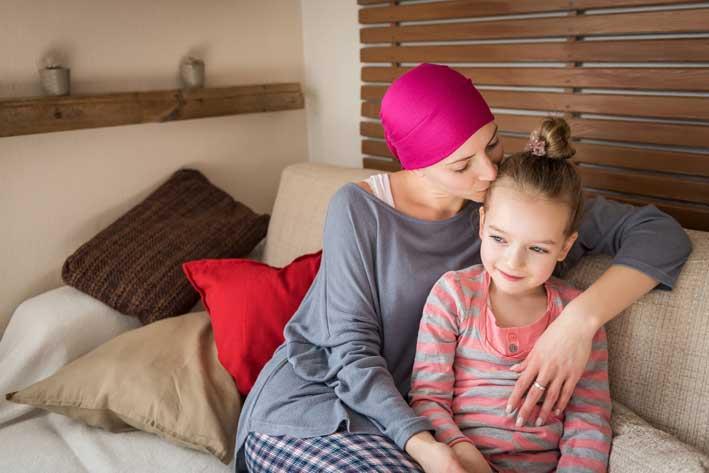Hospice Malta has been providing free of charge Palliative Care since 1989. Over the years, Hospice has evolved according to the Palliative Care needs of our patients and their families. This process entails a continued review of patients and their necessities in order to meet the ever-changing medical conditions as well as other challenges including practical, social and psychological issues. Throughout the past year, Hospice's team of professionals has provided Palliative Care services and support to more than 1,300 families. Like many hospices around the world, most of the patients referred, include those with advanced cancer, however, Hospice Malta also provides its services to patients with Motor Neuron Disease, advanced cardiac, renal, respiratory and liver diseases, with the majority dealing with severe symptoms and/or the challenge of complex or multiple conditions.
The difficulties brought about by the pandemic added another layer of challenges in actually ensuring that the services reach our patients. The notion of accessibility, the required patient follow-ups, as well as seamless intervention, remained crucial to ensure that Hospice patients received comprehensive and timely assistance, while families continued to receive support through the Hospice bereavement services when necessary. With the primary objective being to maintain this crucial link between professional and patient/family while, on the other hand, following safety measures in line with the directives issued by the Health Authorities, Hospice started to shift some of its services online. The situation with regards to home visits by the care team was assessed on a daily basis, whereas other services including loaning of equipment and care assistant service were maintained with full precautions taken to ensure everyone's wellbeing. Telephone contact/online video sessions were supplemented to ensure that patients and their families felt supported throughout.

This also brought about another shift in operational challenges; in terms of the necessary infrastructure mostly related to availability of IT and other communication tools as well as regular IT support to ensure that this medium allowed for this needed change to materialize. Apart from enabling individual patient contact with the respective professional, it also allowed for the continuation of group therapy sessions which were being conducted virtually. These included the new daily online sessions substituting sessions previously held within the Day Therapy Unit at the Hospice premises. This set-up facilitated contact between all members of the HR team, be it at home or at the place of work.

Does this mean that we can easily substitute our previous ways of communicating and engaging by going virtual? Surely not, and especially more so in the palliative care field where the human touch, the physical contact and the compassionate aspect are all so important. Patient-oriented events were sorely missed this year; teambuilding events, the daily interaction with our valuable volunteers and the end of year festivities also come to mind. But this is where the process of adaptation becomes even more important. So talks on different topics were delivered online to the day therapy patients; a number of video-clips with messages from the care team were uploaded on Facebook; leaflets with information about physical exercises which can be carried out at home were circulated; the annual remembrance event was recorded and family members were informed so that they could follow it on TV; the Hospice education and training programme was held virtually; a Facebook group was created for staff and volunteers and an online event was held as a small teambuilding activity. Support from volunteers also remained ongoing remotely on a daily basis in areas such as reception and fundraising. These were some of the measures taken throughout the year as Hospice navigated through the pandemic. On a positive note, the added benefit of these measures was all noted and going forward, they will be integrated within our operations once the situation gets back to normal.

It's surely no easy feat, but all this adaptation has to remain constant as we continue to focus on how we can support further our staff and enable them to provide a high quality service to Hospice patients and their families. We will also continue to monitor our services and liaise with hospices abroad to use the latest measurement tools and benchmarks as well as obtain 360 degree feedback from patients/families, the general public as well as through our employees and volunteers. All this, together with ongoing Palliative Care education, ensures continuity of provision of high standards of care.
Through the constant monitoring and adaptation of care and support practices, Hospice has continued to provide its services through close to 44,000 hours of direct patient contact time throughout 2020. We will continue to respond to the changing needs of the times to ensure Hospice maintains its premium position in its efforts to provide effective palliative care as and when needed. This approach will mean more families receive the support they need, can stay together for longer and be spared the unnecessary admission of their loved ones to acute hospitals. In spite of a global pandemic, these remain the guiding principles of Hospice care within the community.